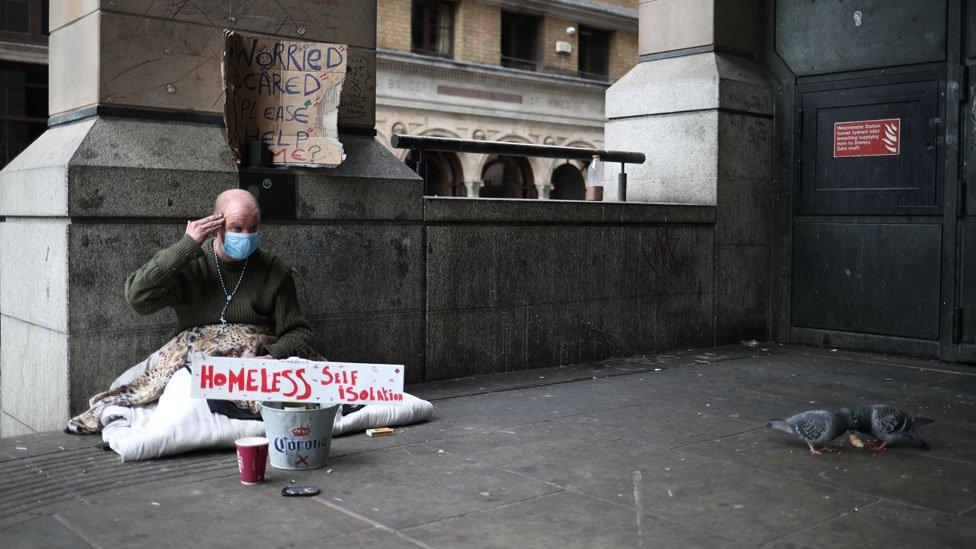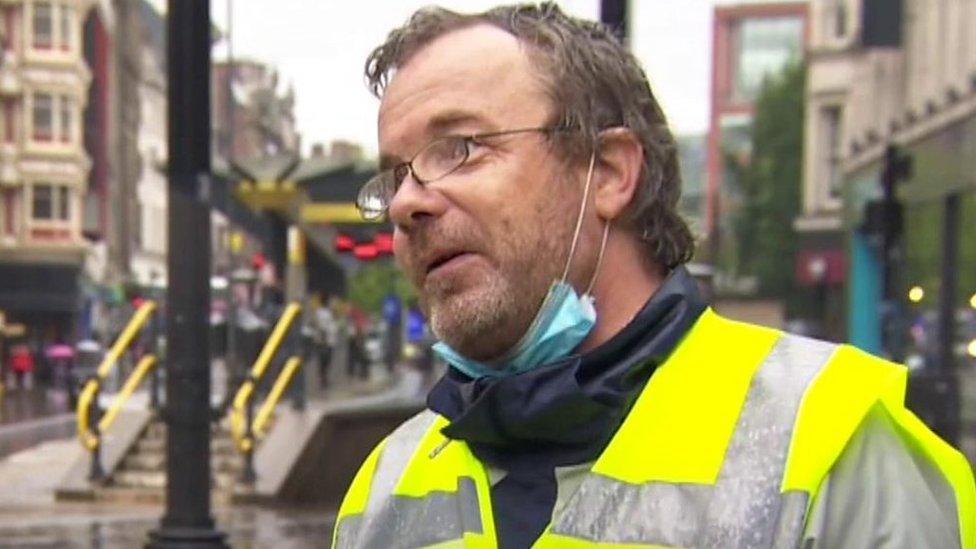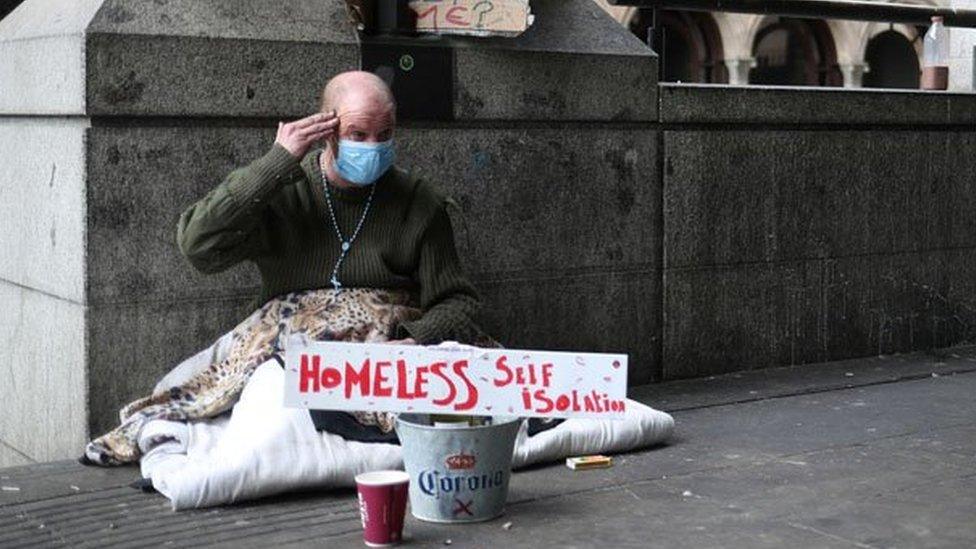Rough sleepers: Councils to get £105m more to stop people returning to streets
- Published
How the UK's homeless are coping during the coronavirus pandemic
Councils in England will be given an extra £105m to support rough sleepers put up during lockdown.
Thousands of rough sleepers were housed in hotels and B&Bs as coronavirus hit.
But councils and charities had called for help to ensure people did not have to return to the streets when hotels reopen on 4 July.
Dame Louise Casey, who leads the government's rough sleeping taskforce, said the funding meant nobody would need to return to rough sleeping.
More funds for drug and alcohol support services will also be brought forward.
However the funding is not a long-term solution to homelessness. It is to act as a stopgap until longer term policies can be worked out later in the year.
'Everyone in'
At the start of lockdown, English councils were given days to move thousands of homeless people off the streets and out of shelters into self-contained rooms, many in hotels.
The government estimates that 14,500 people have been helped so far under the scheme that became known as 'Everyone In'.
Last week, the BBC's The Next Episode podcast revealed that three quarters of homeless people in 17 areas were still in temporary accommodation, with some already sleeping rough again.
Councils and charities warned that more would soon join them if a proper solution wasn't found before hotels were allowed to reopen to the public from 4 July.

The government's rough sleeping taskforce said the new funding meant nobody needed to return to the streets
Now, councils will be given a further £105m to support rough sleepers, for example by extending existing contracts with hotels, or starting new ones with other providers like universities or youth hostels.
Most of this is new funding, with £20m taken from existing government homelessness budgets. It will be up to individual authorities to decide how to use that money.
A further £16m of planned spending on drug and alcohol support for homeless people is being brought forward to this year.
The devolved governments in Wales, Scotland and Northern Ireland will also receive extra money under the Barnett formula.
'Extraordinary opportunity'
Communities secretary Robert Jenrick said the new funding would give homeless people "access to the accommodation and support they need now while we continue with plans to deliver thousands of long-term homes in the coming months."
The efforts so far had created an "extraordinary opportunity" to end rough sleeping, said Louise Casey, chair of the Covid-19 rough sleeping taskforce.
"I am clear that there can now be no going back to the streets as people begin to move on from the emergency accommodation that has been put in place," she said.
Amanda, who was put up in a hotel, told 5 Live: "We’re finding our own identities again now."
Before the announcements, several charities had warned of the urgent need for further support.
Petra Salva, the director of rough sleeping services at homelessness charity St Mungos said "conversations are starting to happen around exit planning - we've got weeks, at best some months to find alternative solutions."
Cllr David Renard, the Local Government Association's housing spokesman, said councils were pleased at the extra funding.
"Councils want to take this opportunity to change the lives of our most vulnerable residents and have already been working up plans to support people to move on from emergency accommodation."
However, he said councils also wanted those rough sleepers with no recourse to public funds to be allowed to access welfare benefits, to ease the pressure on homelessness.
- Published20 June 2020

- Published18 June 2020
